Will every child in Wales get a free week-long school trip?
- Published
Children take part in a range of activities, including kayaking and rock climbing
All children in Wales should have a week in an outdoor education centre paid for by the Welsh government, a Member of the Senedd has said.
North Wales Conservative MS Sam Rowlands wants it to be a legal requirement, at a cost of up to £13.6m.
Parents have spoken out in support of the proposal, with one mother in Maesteg in Bridgend county saying "so many children miss out" currently.
Mr Rowland said his plan would end unequal access for pupils across Wales.
Trips see children take on a range of activities, like kayaking, rock climbing, and other outdoor challenges.
Gareth Davies, manager of the Arete outdoor centre in Llanrug, Gwynedd, said the challenges faced by children on outdoor courses would "put them in good stead for the future".
"This is real-life learning going on," he explained, "the perseverance and resilience and the positive mindset that pupils need to complete these challenges will apply for all life's problems."
A week's stay costs between £290-£400 per child, and Mr Davies said his centre often saw pupils "whose families can afford for them to come away."
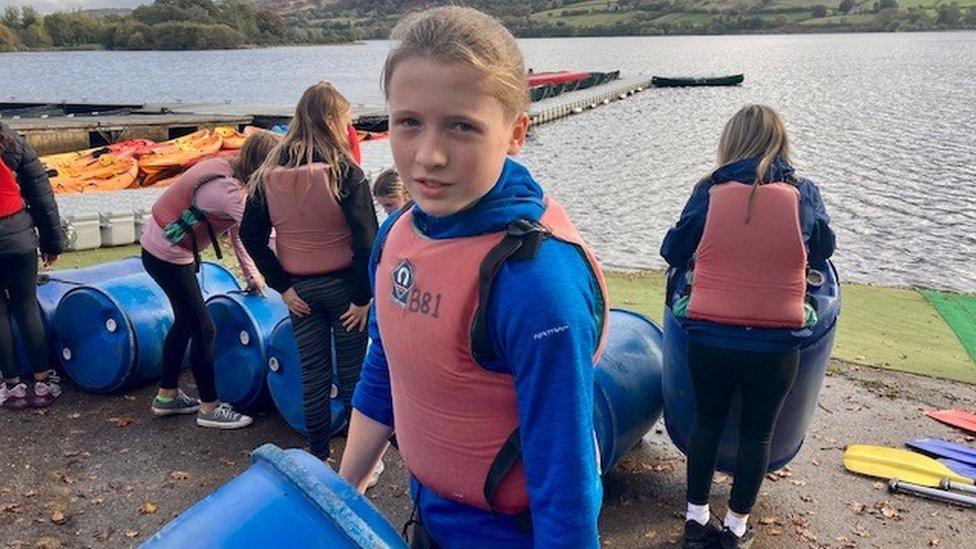
Challenges faced by children on outdoor courses would "put them in good stead for the future", says Gareth Davies, manager of the Arete centre in Llanrug
"It upsets me that we have some schools that can't afford to come along, no matter how much we try to make it cheaper for them," he added.
'Expensive for Mum and Dad'
A proposal requiring local authorities to offer all pupils a free week at an outdoor camp during their school career will be discussed in the Senedd on Wednesday,
The idea went down well with pupils attending the Glan Llyn outdoor activity centre near Bala in Gwynedd.
"I'm one of six in our family," said Ben, "so it's expensive for Mum and Dad to pay for me to go to Glan Llyn.
"I think every child should be able to come somewhere like this."
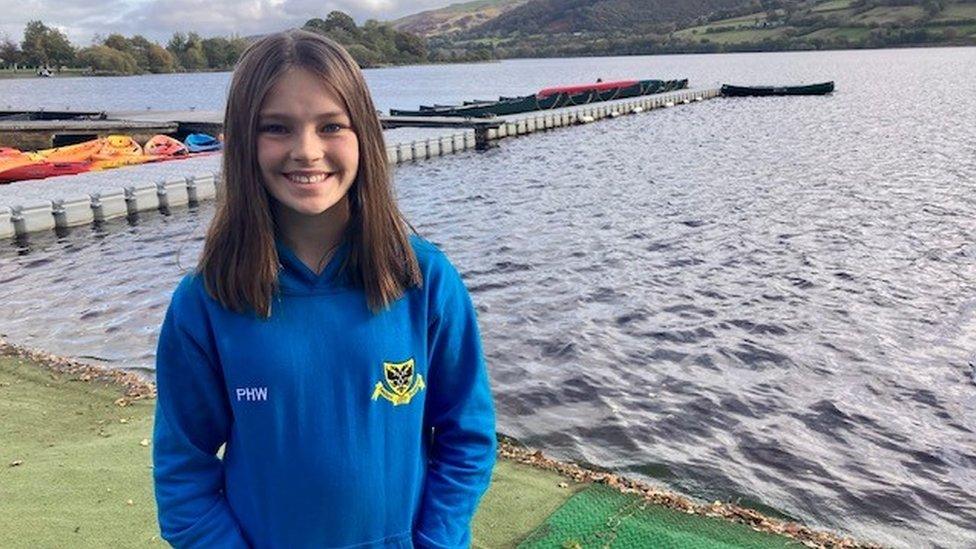
Poppy says after the lockdown period being at the Glan Llyn camp has been a valuable experience
"Because we've been in lockdown it's a special chance to spend time with friends and we can remember it when we're older," Poppy added.
'Don't want to discriminate'
In Maesteg, mother-of-one Alex Hill said: "It is an expensive scheme, but there are so many children who miss out on these opportunities because they can't afford it, so maybe they could look at just providing it for the people who are not able to afford these opportunities".
"But we don't want to discriminate against people either."

Alex Hill thinks introducing a free school trip for all children would stop some from missing out on positive experiences
Jodie Elwood, who has a one-year-old daughter, thought it was a good idea, especially for children whose families can't take them on holiday.
"They can mix with their friends, and some people can't afford to go on holidays so it'll give people the benefit of having that break," she said.
Rhian Llewellyn, who has two children aged 15 and three, added: "It would get my daughter off her phone, it would be something creative for them to do rather than phones and they long for places to go and there's nothing about.
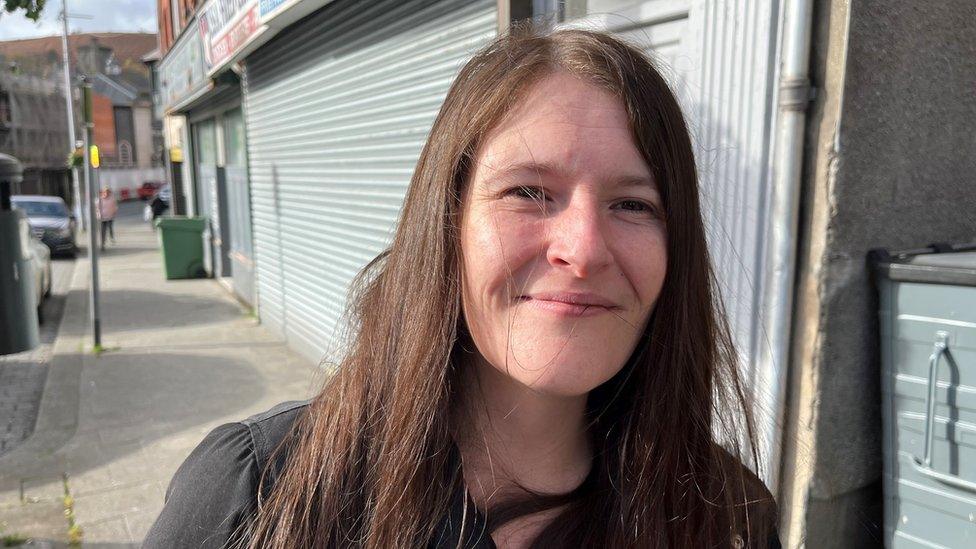
Rhian Llewellyn thinks that spending money on 'something different' for children to do would encourage creativity
Children living in better-off areas of Wales were twice as likely to take part in such visits than those from more deprived areas, Mr Rowlands said.
"It isn't right that young people from less affluent areas miss out," he added.
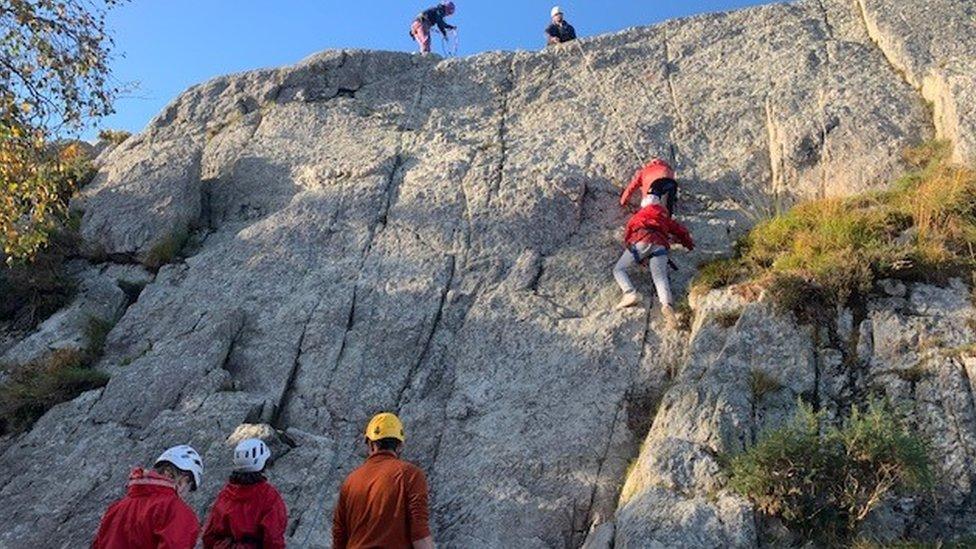
What goes up... children scale a rock face using ropes
Under the proposed Outdoor Education (Wales) Bill, government funding would be allocated for councils to pay for the trips.
Mr Rowlands admitted funding the offer would be a "challenge" but said the "real benefits" would include improvements to physical and mental health.
Bangor University's Graham French is looking into the health and welfare benefits of outdoor education as part of a government study.
He said outdoor trips should be viewed as an essential part of the curriculum, and not "an enrichment that's a nice to have".
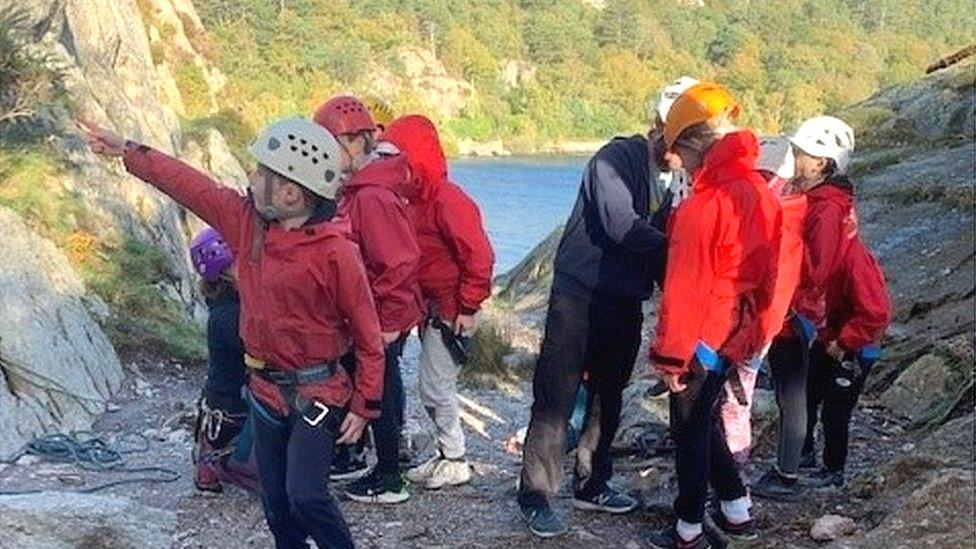
Pupils get 'real-life learning' by doing activities like rock climbing
"We see that children are able to socialise, they're able to talk and work together," he explained. "It puts them in new situations but helps them to develop those social interaction skills.
According to long-term health data, he said, "if we can engage children in outdoor activities, making them fit and physically active, this is going to put less strain on the NHS when they grow up in 10 or 15 years' time.
"We're also looking at the mental health benefits that will put less stress on child and adolescent mental health services in local authorities in the near future, when these children are teenagers and dealing with exam stress and such like."
Dr Marlene Davies, an associate of the University of South Wales, said the idea could be "fantastic for the children".
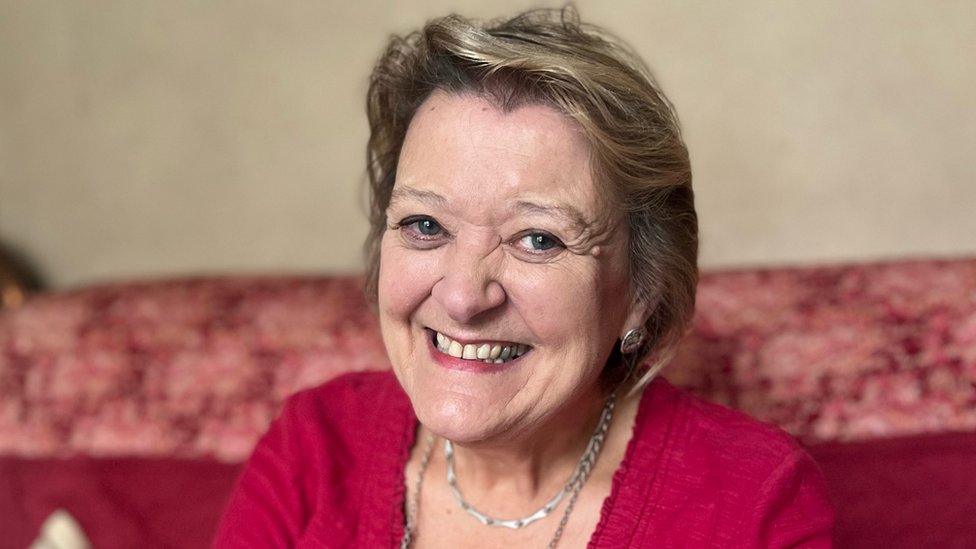
Dr Marlene Davies backs the idea, providing extra money is used to fund it
But she said if the proposal was eventually to become law, extra funding would have to be provided to councils by the Welsh government, especially with local authorities concerned about finances in the coming years.
She added: "Providing the Welsh government is prepared to fund it separately from their current funding of local authorities, that's great - children will benefit, even the outdoor pursuit centres will benefit in terms of income for them.
"But if the local authorities have to fund it themselves this is not going to be on their priority list, especially with cutbacks."
- Published26 October 2022
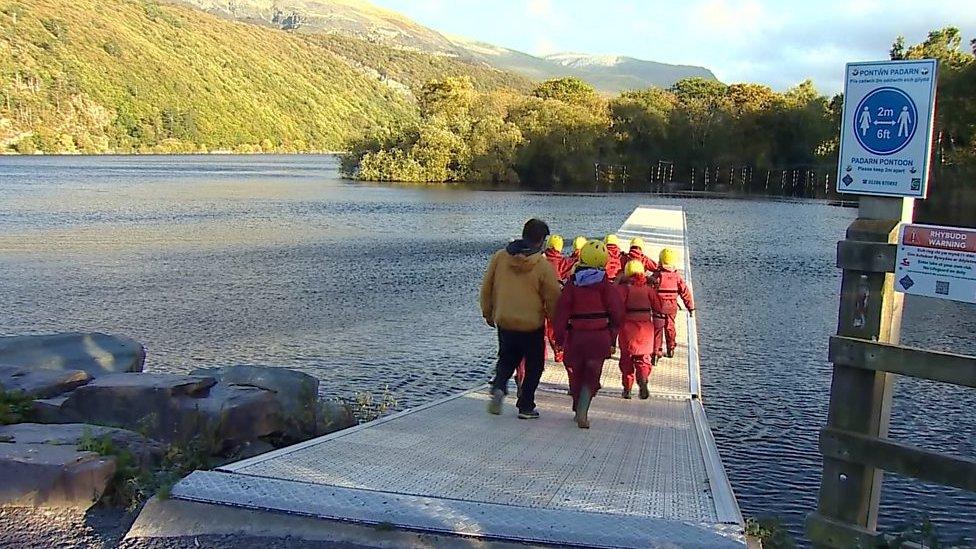
- Published11 October 2022

- Published9 June 2022

- Published29 August 2022
